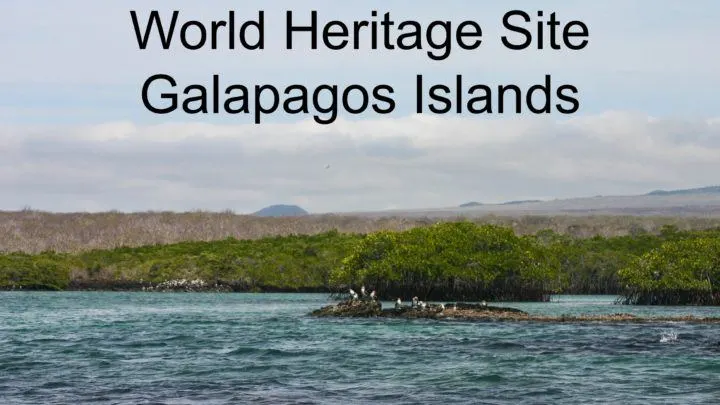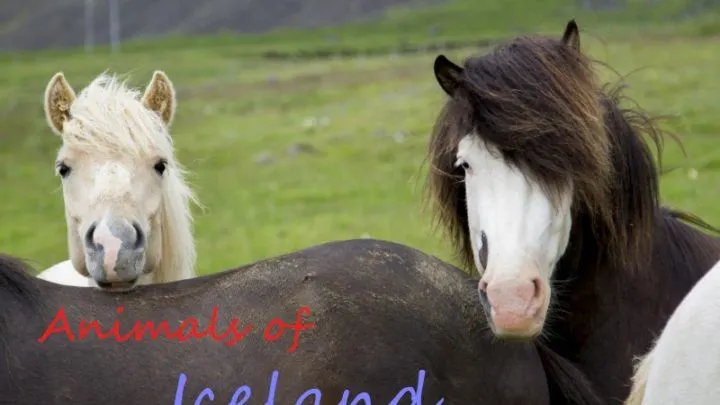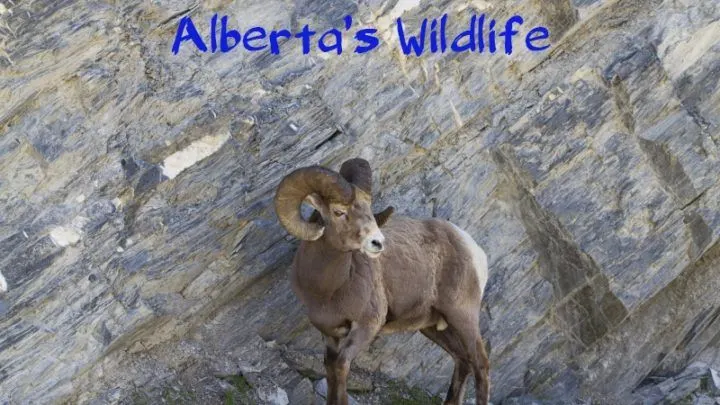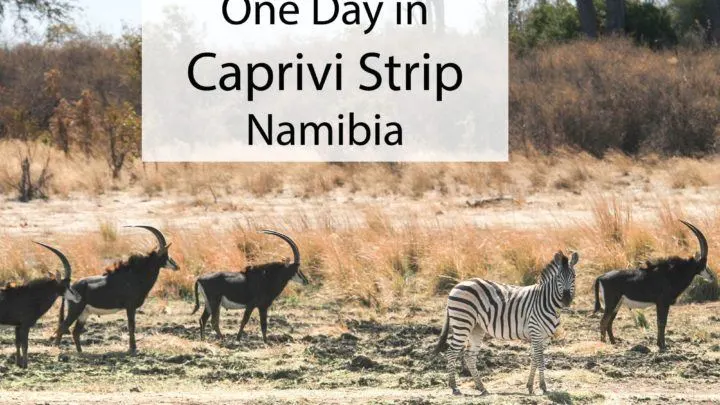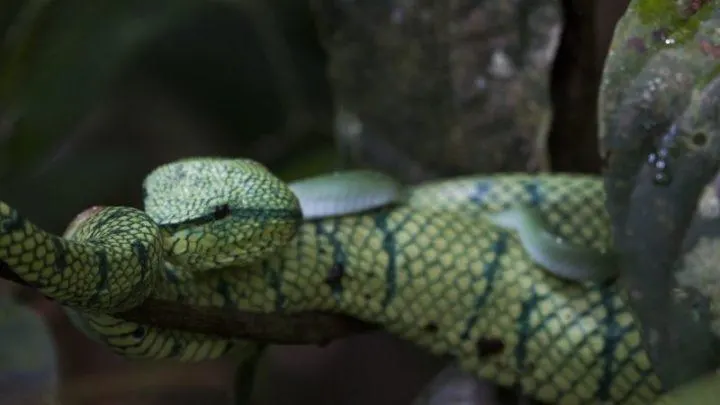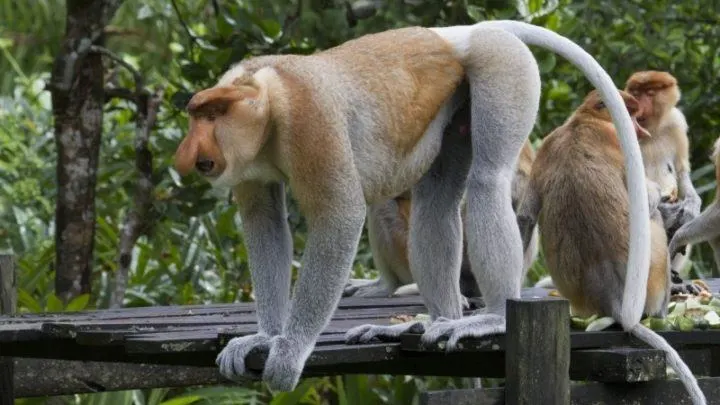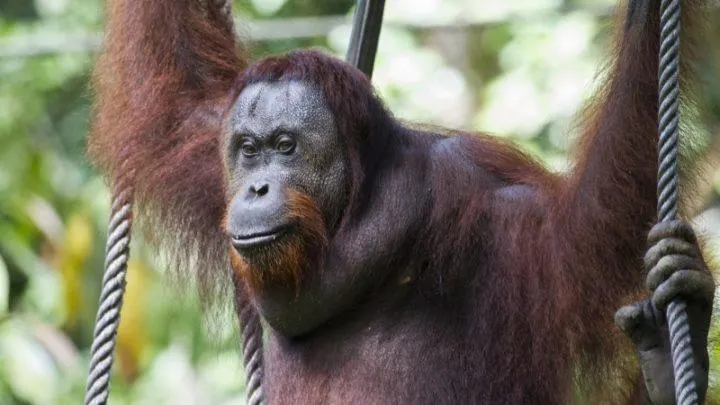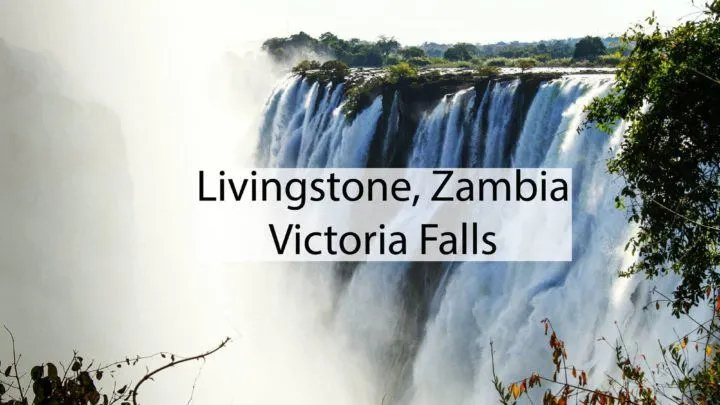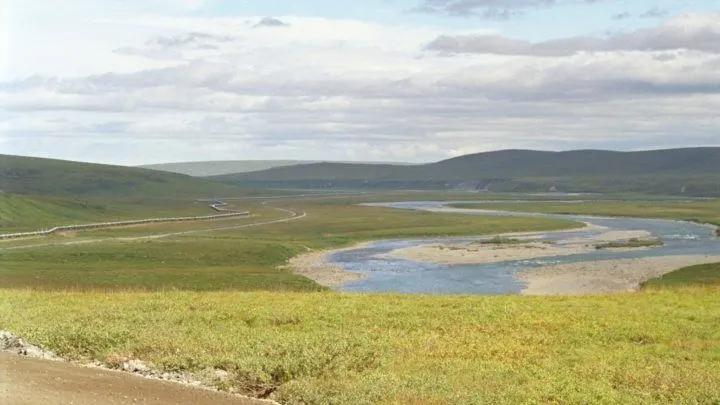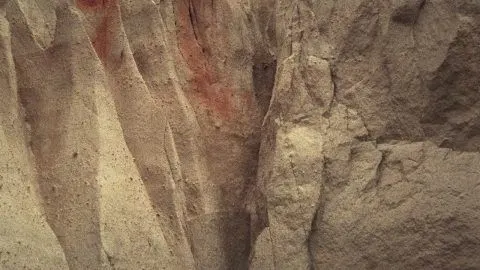Have you always wanted to go on an African safari? From deciding on how to go, where to go, what to bring, and our sharing our experiences. We’ll get you started planning the best safari of your life. We love gazing at elephants, zebras, and giraffes to name a few, and it can be easy to do.
Or you can always subscribe to one of these:
Apple Podcasts
Google Podcasts
Spotify
Amazon Music

Show Notes
04:12 – Ideas for great countries in Africa for wildlife safari
09:06 – Different ways to go on safari
12:46 – Game drives offered by lodges and camps
16:21 – How much does an African Safari cost?
19:07 – What time of day is best for safari game drives?
21:49 – Wildlife safari from the water
26:40 – What are sleeping conditions and meals like on safari
32:38 – Packing and planning for a safari trip
38:42 – Phone, internet, and money
44:14 – Safety around the animals
Check out our podcast on our favorite animal encounters around the world!
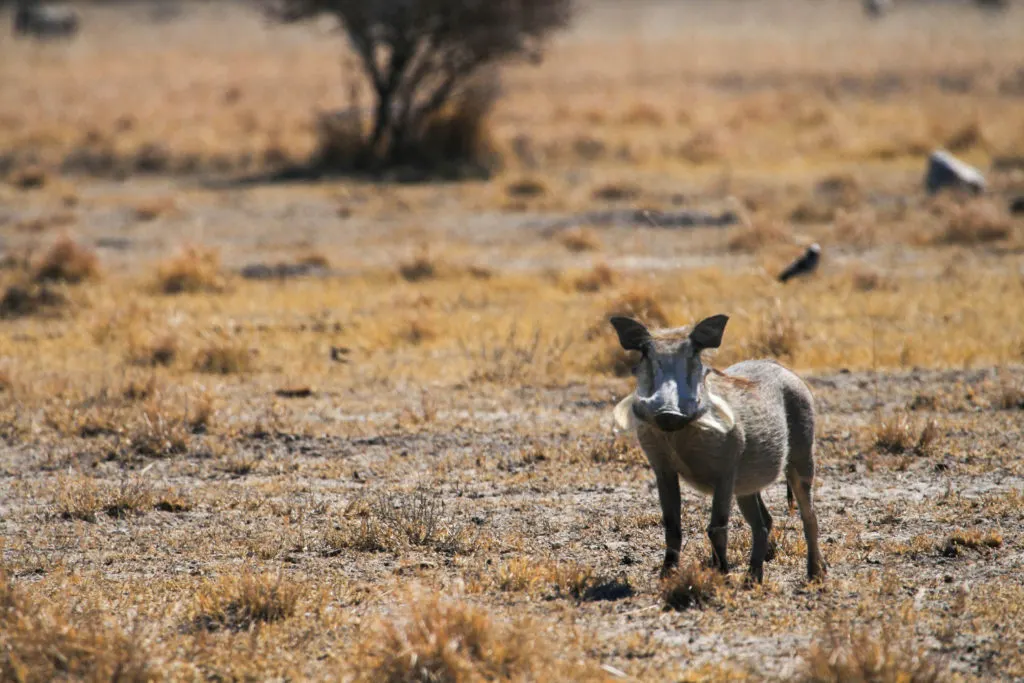
Worth Mentioning
Some of our articles about African Safaris to whet your appetite:
Botswana
Namibia
South Africa
Uganda
- Queen Elizabeth National Park – Kazinga Channel
- Isasha Lions
- Chimpanzee Trekking
- Trekking with Bwindi Gorillas

Join Our Community

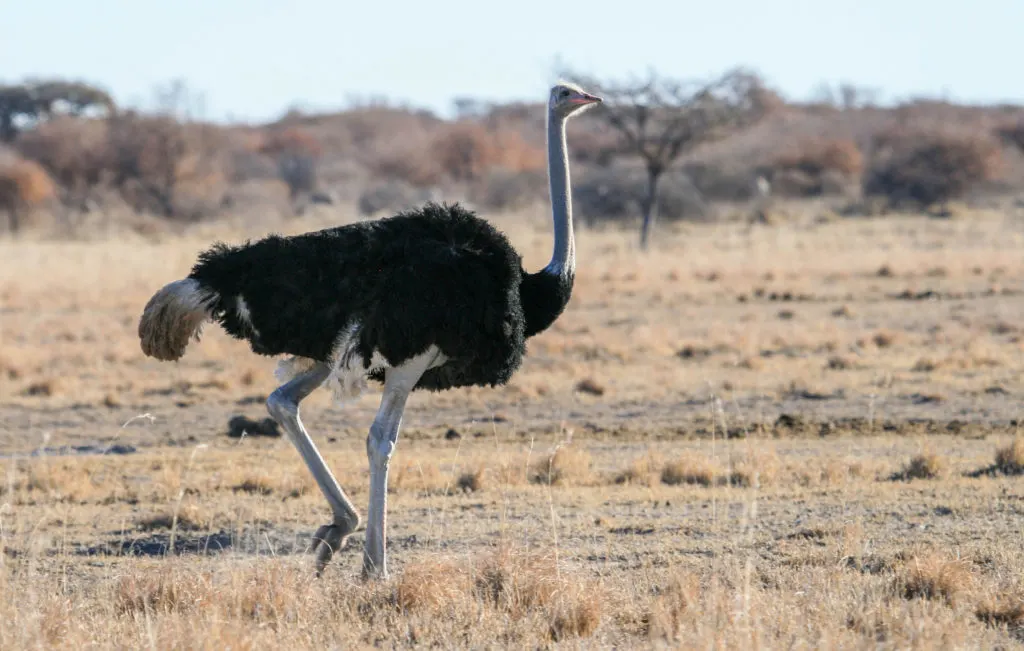
If you enjoyed planning a safari...
Podcaster Bios for Jim and Corinne: Jim and Corinne are a married couple who love everything travel. Having met and married in Germany, they’ve never stopped. Along the way, they have raised two kids, visited over 90 countries (including every country in Europe), and have plenty of stories and travel tips to share. Read more about them on our About page.
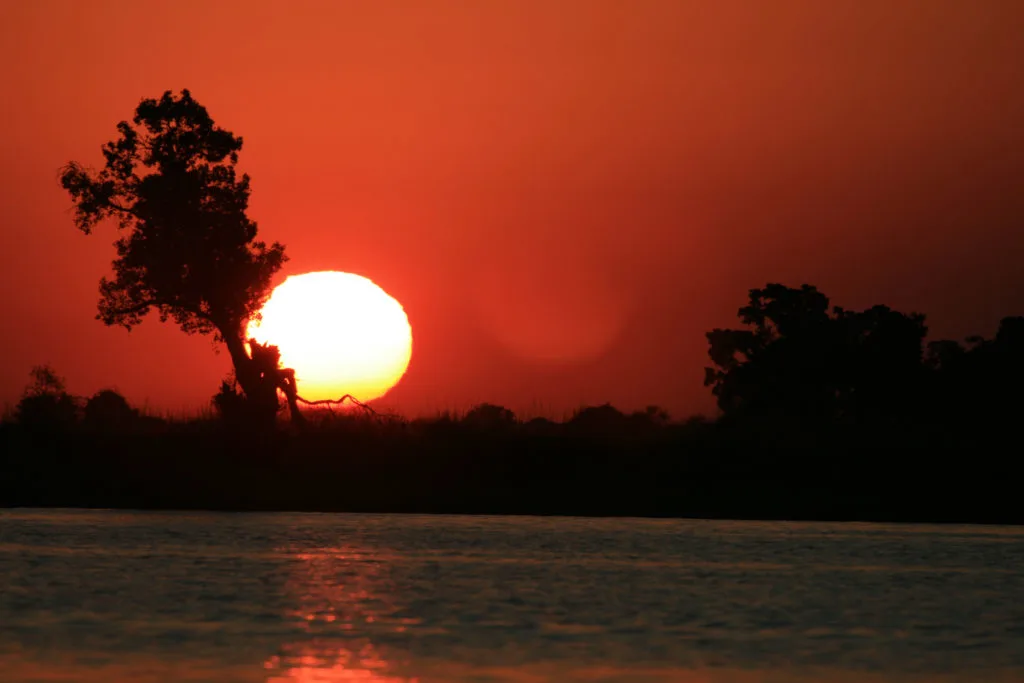
Full Transcript of Podcast
About this transcription: We post transcripts mainly as an accessibility method. If you choose to read it, please keep in mind 1. We are people, talking, and much of it isn’t grammatically correct but works as a conversation. 2. This transcription was not done by a real person but a program, so there are probably mistakes. To really get enjoy our tips and stories, it’s just best to listen to the podcast.
Corinne 0:00
Hi, and welcome back to Streets and Eats. This is episode 40. And we’re talking about one of our favorite places on Earth, Africa, to be exact Southern Africa, where you get to see the most amazing wildlife,
Jim 0:14
Streets and Eats is the travel and food podcast dedicated to taking our listeners to the sights, sounds, and flavors of fascinating places near and far, both on and off the beaten path, where Jim and Corinne Vail and we’ve been traveling internationally and domestically together for decades, visiting more than 90 countries in all 50 states in the USA, we’ll share all of the local knowledge and food expertise we’ve gathered through years of living as expats in Asia and Europe, as well as traveling with family spanning multiple generations around the world. Join us each week for a new adventure.
Yeah, we are back. And I think we’ve said this before, but it really seems like we’re on the back end of the pandemic. And travel should be opening up even more and more. We’ve definitely been doing a little bit of travel. And I think we’re kind of looking forward to a little international travel.
Corinne 1:06
Yeah, luckily, we’ve got some interesting news. I’m not sure if we’ve told you yet. But my daughter is moving to Vietnam. And so she’s taking the grandson with her. And so we want to spend time with them. And we’ll be going to Vietnam and Southeastern Asia as much as possible in the next year or so, at least.
Jim 1:27
Yeah, we lived in Japan for quite some time, and Korea, too. So we’ve traveled quite a bit in Asia, and we just really love it. It’s been a few years now. And yeah, I’m excited to get back.
Corinne 1:40
We’ve got a lot of places that we’ve been to that we need to go to again, like Vietnam, we’ve been there before. We’ve been all over Southeast Asia, but it’s been a few years, quite a few years. And it’s time to, you know, go back, see how things have changed, and maybe eat some of our favorite foods.
Jim 2:02
That’s kind of why we have to go back to places usually. And there are always things that you miss when you’re traveling. Well, there are things that you don’t get a chance to do, I should say, while you’re traveling somewhere. Sometimes we just miss them. And sometimes you miss them and you want to get back to them. So we always try to make sure that we leave something that we can go back to do on repeat trips. So we’re looking forward to that.
Corinne 2:27
I don’t know if we leave them on purpose. That’s a little misguiding. I think that no matter how much you’ve been in any country, even the smallest of countries, you just cannot possibly do and see it all unless perhaps you live there. But especially on most people’s trips, which are like two-week trips, yeah, it’s just not gonna happen.
Jim 2:49
You’re not gonna be able to do it all. You just can’t. I don’t know how many times we’ve been sitting in an airport, waiting for a flight talk out of the country, leaving the country talking with people that have also been traveling there.
Corinne 3:03
And they’ve done something amazing thing that we didn’t know about.
Jim 3:05
Exactly, or and we’ve done something that they didn’t know about. So there was constantly adding to their list.
Corinne 3:11
Yeah, it’s fun. Yes, but what we’re talking about today is definitely countries that we would love to go back to. I don’t know that we’ve done everything in these countries that we’ve been to where we’ve done the wildlife drives, but we love a safari. And I mean, I could go to them over and over and over again. Anyway, even if it wasn’t in a really cool country, which most of these are.
Yeah, so we’ve done wildlife viewing as part of our regular travel, we try to go to places where we can see the wildlife that is native to that habitat. We’ve been to Borneo and we’ve been to Australia. And we’ve been to Madagascar, which we did a podcast on. But this podcast is particularly about setting up African safaris and how to do it, and how to pay for it. What to bring all that kind of good stuff.
Jim 4:07
Yeah, what to expect from all that good stuff. And we like I said, we’ve been to so many places on safari in Africa: Namibia, Zambia, Botswana, and Uganda. And you know, we haven’t even really scratched the surface yet. Yeah.
Corinne 4:23
I mean, I can think of a few places I want to get to I want to get to Tanzania where we can do the Serengeti, get to Kenya where we can do the Masai Mara, I want to get to more of South Africa. We’ve done some of South Africa. I want to get to more of Namibia. We’ve done some of Namibia. But I mean, we really even in doing to the countries that we’ve already been to. Like we said there’s still more to do and there’s a lot more that we haven’t done.
Jim 4:50
Anything with natural history and seeing animals and habitats. Like you said. It’s just always different, even in the same place. A different day is different the weather is different. The animals behave differently.
Corinne 5:02
Well, they’re animals. I mean, you see him in different spots, they move, they do things, they’re alive.
Jim 5:07
So for me, I think for you too, it’s always, it’s always super exciting. Yeah, we could go to the same place over and over again. And I think never get tired of it. But you know, when you’re talking about, like checking off a list, we’re not big list checkers.
But at the same time, you know, there’s that big five, you have to see the rhino, the buffalo, The Lion, the Leopard, and the elephant in the wild. And we’ve still only seen four of the five, we’ve tried over and over again to see leopards and we just haven’t done it. So there’s gonna have to be more Safaris in our future.
Corinne 5:45
Okay, so I gotta put a little disclaimer in here. First of all, the word safari comes from the old British colonial days, when people went on safari to go, kill and make trophy hunters of the big five. So both the word safari and Big Five can have sort of a negative connotation.
Hopefully, neither one of them has continued that so far into this day, because people go on what they call a safari just to do wildlife drives, and they go to see the big five because somewhere along the line, it was a list to see.
Yes, those five animals are pretty cool to see. But there are so many more out there that were on my list to see crocodiles, antelope and kudu, and wildebeest and I love cheetahs. Giraffes are my favorite and giraffes and zebra. And I mean, to me, the big five, I kind of shy away from that term more than Safari. I like the word Safari. However, I don’t want people to think that we’re outgoing trophy hunting. The only thing we’re shooting out there is with our camera. And we’re shooting a lot of photos on our camera.
Jim 6:56
Yeah, the only reason I really think of the Big Five is that it is a list and we just have not seen the elusive leopard yet. So really, my list is a big one. Now, the leopard. I think we’ve seen pretty much everything else.
Corinne 7:09
We haven’t seen wild dogs. We’ve heard them. We may have heard them, but we haven’t seen them. No, I mean, there’s still plenty out there I want to see. On one of our very last, in fact, probably the very last time we went on a wildlife drive. We were in a park in northern Uganda. And the guide said to me, what do you want to see?
And you know, we’d been on Safari for three weeks. And we’ve seen so many amazing animals. I basically felt like I was happy. I hadn’t seen a leopard. I haven’t seen everything. But I was very content with what I had.
But he was, he was kind of pushing me. Nothing really, really, you know, what do you want to go see? And I said, Okay, here’s what I want to see. I want to see Python. And he looked at me like I was crazy. I’m sure no gray-haired, white-haired white lady had ever said that to him before.
And so he said, “Okay, I will show you a Python.” Well, he tried and he tried and we did chase snakes. We chased a few snakes down and you could see the grasses moving and we went and saw snakes. He was pretty good at spotting them. He was very good at spotting them. But unfortunately, the Python still eludes me.
Jim 8:22
Okay, okay. Well, I wouldn’t say that I’ve seen everything either. But I do want to see a leopard.
Jim 8:29
But we are happy with what we’ve seen. Absolutely. Okay, so let’s get on with this. We’re trying to help everybody plan their own Safari.
Corinne 8:38
And hopefully, do it whether or not you know, it’s a safari. It’s a once-in-a-lifetime trip. But hopefully you’re not spending your life savings to do it.
Jim 8:45
Right. Exactly. And you know, you might get the catch the bug, like we have. And it won’t be a once-in-a-lifetime trip. And you’ll keep wanting to do it over and over again. So, in the places that we’ve been in Africa, we’ve done Safari a few different ways. And there are different types of Safaris that you can do and so you want to research to make sure you’re doing the one that’s going to fit your style of travel the best.
Corinne 9:11
I think the most common one that you’re gonna find is a tour, a group tour, where you might have some fly-ins or you might have a small group, and you might have a larger group. You might I mean, it even could be an Overlander and Overlander is a big, huge, amazing looking truck.
Jim 9:33
It was like an inter-planet truck from Star Wars.
Corinne 9:37
Well, whenever I think of it , I always think it looks like one from Waterworld, or what was the one with the big trucks going over the desert? I mean, that’s what it looks like with these huge tires like Mad Max. Yeah, That’s what I always think of, because these things are huge.
I mean, I think you have to have a ladder to get into them. And they’re kind of a budget tour. And you’re going to your camping sometimes, from what I understand, because I haven’t done this yet, sometimes you’re even on the ground.
Sometimes you’re in a budget hotel, sometimes you’re in a campground, and you definitely share cooking duties, like capers, like chores, and things like that. And they try and keep it as low cost as possible. And they go all over. But even if you added it up, I mean, you’re still gonna spend $10,000. I’m not spending $10,000 to cook your food.
Jim 10:29
It’s not happening. If I’m spending that kind of money, somebody is cooking for me.
Corinne 10:33
If I’m spending $10,000, I’m going on a tour with a little bit of luxury, or at least, you know, a bed. A few beds every night have had a bed thrown in, that’s for dang sure.
Jim 10:43
You’re right, you could sign up for a tour that’s been managed for you. And it could include flying into one location and then flying back out.
Corinne 10:53
Or even into some of the camps, you know, that we have. That’s what I’m taking a tour and they’re driving on the bus most of the way. But there’s one camp that they’re flying into here to see elephants or something,
Jim 11:05
That same tour could then come back and then get in an Overlander, for instance, and go off to another destination, where you might get out of that, and break into smaller groups where you go on four by four Safari into a park, or on a river safari. So that means, there are a lot of ways to do Safari.
Corinne 11:26
And a lot of different tours. So if you start looking into tours, really do your due diligence and go through as many as you can. There’s also, and this is basically more of what we’ve done, there’s a way to contact people to set up your trip for you. And I would kind of consider that a private tour.
We’ve never done it, where we had someone travel with us. All we’ve ever done is had them set up the places that we stopped, they made the hotel reservations, they rented the cars for us, and they did all that kind of hard stuff. But then we did all of the groundwork after that, we just didn’t have to do any of the planning beforehand. And that still, that was much cheaper than going on a group tour. But it also still wasn’t cheap.
Jim 12:18
Right. And we did have a lot more control that way. So I mean, that’s pretty cool. So even on that one, we still did some small group tours, where we would get out of our truck and climb into a larger four by four that seated like six or eight other passengers, plus a driver and a guide.
Corinne 12:37
I wouldn’t call that a tour. I would call that part of what the lodge offers you, right? What you do is when you get to a lodge, and you’re checking in, oftentimes, not 100% of the time, but oftentimes, the lodge will say to you, okay, every night you get two tours, or at least one tour and a game drive or a spa.
Or they have like these little extras that are part of the reason that you book their lodge versus another lodge. And those things, you’re getting into a four-by-four Jeep, and you usually have a guide and a driver. And sometimes you even have cocktails or, or lunch, even all kinds of different things are set up.
And that is included in your lodging because the lodges also run a lot of the tours. And that’s how I think people are doing it much more independently nowadays. Because it used to be not too long ago. I mean, it seems like we’ve had the internet. And we’ve had things like hotel booking sites for you know, ages. But that’s really not the case, trying to find an African Lodge.
You know, even I know, I’m gonna say 10 years, but not that many years ago. It was just hard to do. Nowadays, everything’s online, literally everything. So you can easily go in if you wanted to do it totally independently, either buy or rent a car and book your own lodging. And those lodges will often as I said, have game drives included in their price.
Jim 14:18
Yes, safari game drives.
Corinne 14:22
Mm-hm, but I wouldn’t call it a tour.
Jim 14:25
That’s true. I agree with you. I’m just thinking of different types of Safaris that you can do. And like you said, at the different game camps where you go the safari camps where you go, yeah, they have different options for you. How you get there, I guess varies. You could fly into some camps or you could drive yourself to some camps or on a tour. They could bring you to that camp.
Corinne 14:53
Well, there’s also a train. Ginny took the Rovos Rail. You can also I’m sure if you’re pretty, you know, adventurous, I’m sure you can find little bus taxis that will take you from town to town, depending on how far you want to go.
Jim 15:12
Well, we also had friends who did it kind of like a self-drive, except they didn’t drive. They were in their own car. But they had a guide, who was also their driver that drove them from park to park…
Corinne 15:25
Which was what they really enjoyed. They thought it was great, you got to know one guy, it was just the two of them. And they did almost the same itinerary we did, except I think they did it backward.
And we did this in Uganda, and they really enjoyed it. We both had excellent, excellent experiences in the whole country. And we were happy that we did a completely on our own because we don’t want to be stuck in the car with the same guy for two weeks. But we have done that before.
Jim 15:54
It’s okay, we’ve enjoyed it each time we have.
Corinne 15:58
There’s one time that we did not enjoy it.
Jim 16:00
Usually, you hit it off really well with your guide and your driver and you kind of make a new friend, which is kind of cool. So that’s another way to think about it.
Corinne 16:11
But I’m gonna say, I mean, I really hope someone will tell us if we’re wrong. But I don’t think that if you’re going to go and you’re going to take a full-on group tour, or even a private tour of some sort, you’re really not going to spend less than I would think $6,000.
Yeah, I think that’s pretty normal. We went to Uganda, it was a little cheaper than that to begin with, just for the car in the end, the actual reservations and the hotels and stuff. But then once he added on all the permits for doing things like the chimpanzees and the gorillas, I mean, we definitely spend at least $6,000 each.
So I just don’t think you’re it’s just not a cheap destination. And so what a lot of people do is they wait until they’re later in life to go, which I don’t think is bad. I mean, you’ve got more time, you’ve got more money. Sure. I think that’s great. But on the other hand, Jim, and I loved it so much that we’re glad we went we were a little bit younger so that we could keep going back.
Jim 17:12
That’s right, it definitely gets under your skin and you want to keep going back. And there’s more places to go.
Corinne 17:17
Like Jim said, I mean, each country has its own habitats, they have their own wildlife may have their own flora. Just I mean, just everything is so different everywhere you go. It’s just so beautiful.
Jim 17:32
We haven’t even talked about the culture of the country itself.
Corinne 17:35
Yeah, we’re basically talking about the animals because I think that’s most people’s draw to the idea of the safari, right?
Jim 17:44
I mean, for me, so about $6,000. And that’s going to be at least what it costs.
Corinne 17:49
Yeah, yeah, you can, of course, it goes way up from there. I mean, that’s for a run of the mill, pretty nice. Hotels, but nothing spectacular, certainly not luxury. If you’re gonna go luxury, you’re gonna start at $10,000.
At the very least, I think, oh, and by the way, that’s after you get to Africa. The one way to do it cheaper, is if you happen, let’s say you have a business deal in Cape Town, you can go to Cape Town, South Africa, and then go and take a, you know, three or four-day tour to one of the parks just have one park there you then you can maybe do it for like 300 to $1,000, depending on where you’re going, or how far you have to travel to get there.
And of course, some countries really lend themselves better than other countries to do that. But you can save money that way. If you’re going on business trips, I definitely always extend and try and do a game drive because it’s just, it’s just wonderful.
Jim 18:51
You want to do that for sure. Okay, when you’re planning a game drive, or let’s say you get the option of game drives from your camp, we’d kind of found that they might say you can go on one of four different game drives in a day, you can do morning, early afternoon, a late afternoon and an evening, let’s say for us what we’ve discovered and we’ve kind of found this is true, pretty much around the world when you’re looking for animals and you want to see them in the wild.
The best times to go are in the early morning sun coming up, just before the sun goes down, or yeah, around sunset. That’s when the animals are the most active. The nocturnal animals are waking up or finishing up their day and getting ready to go to sleep in the morning. The other ones are waking up and moving around. There’s just more activity.
Corinne 19:49
The worst time is late morning or mid-afternoon. So we always try to book, like Jim said, earlier or later. Sometimes it means you aren’t going to be late for dinner or lunch at the time when you’re supposed to, and you have to eat it. You can take a Box Lunch, who cares. This is like we said pretty much a once-in-a-lifetime thing.
The other thing, and it’s not offered all over the place. But occasionally, you’ll find someone that offers a full-on night safari, where they take their spotlight and the guy, the spotter, sits on the top of the front of the truck, and he’s looking at the trees and for things that you would never, never, never get to see otherwise, because they’re just animals, you can see they’re nocturnal.
They’re small, they’re, you know, they’re just, it’s amazing. And those are really cool. If you get a chance to do that. We’ve gone on every single one we’ve ever been able to set up for sure, and we have never been disappointed. There are some that we’ve seen more things and some that we’ve seen less, but it doesn’t really matter. It doesn’t matter at all. It’s just fun.
You see different things and you’ve seen during the day, the guides seem to be for some reason, they let their hair down a little bit after the sun sets. They we’re talkative. Yeah, it seems like they’re more talkative maybe because it is a harder thing to do, I don’t know. But we’ve never been let down. So that’s another tip I would say is when you’re at these lodges go ahead and try to book at night time when it’s available
Jim 21:22
And the other thing about those particular times, morning, evening, and night is Africa can get quite hot. So those mid-day drives are also in the heat. That’s just not comfortable for anybody. So it looks like the animals, including the animals, aren’t around, which is why you don’t see as many because they’re trying to find shade and not moving very much.
Corinne 21:46
If you get a chance if there’s a river, or if it’s the Delta, or whatever, and you get a chance to go on a boat and do a safari don’t pass that up either. Because animals react differently to boats than they do motor vehicles. So they for some reason whether they’re quieter, or maybe it’s the way people drive them, I don’t know, but they seem to be born out to come closer to you. We did a boat safari in Queen Elizabeth National Park. And those animals all were right up on the water drinking and you know, washing and bathing right on the shore.
Jim 22:26
They really didn’t care about the boat. Yeah, very cool. That was a pretty good size. But what would you say there were like 40 people on there?
Corinne 22:32
Oh, yeah, that was one of the bigger ones we’ve ever done.
Jim 22:36
And we’ve also done some really small boats on the Okavango Delta. Remember, we did the mokoros, which are dugout canoes, where it’s was the two of us sitting in the canoe, or the mokoro. It’s not really a canoe.
And then one guide who was also poling, using the long pole to move the mokoro along. That was really cool. And throughout you’re silent on the water. Hopefully, you’ve got a good guide, that’s not going to get you into trouble. I’ve never heard of anybody getting into trouble there. And ours was really good. He knew where the hippos were, which are the biggest problems in the water.
Corinne 23:16
But also something you really want to see.
Jim 23:20
And so he was able to bring us where we could see the hippos without being in any danger.
Corinne 23:25
He cracked me up because he knew the hippo pod. He’s like, this male is very aggressive. So we have to stay back. But this one female is friendly. She wants to be your pet. She always is interested in the boat. So just be very careful.
And we should get to get a little show. And we did we were there for I don’t know, a good 15-20 minutes. And it was fun watching the hippos in their native habitat just interacting with each other, paying a little bit of attention, and keeping us in their sights, but nothing too threatening.
Jim 23:57
Oh, and that also in that mokoro because it was a long trip out. I think we were out for five or six hours. We included a meal. So we also had a meal in that one, which was not much.
Corinne 24:11
I think we had to pay for the Mokaro trip. It was one of the ones we actually had to pay extra for. The mokoros are run by some type of co-op. And it wasn’t included in any of the accommodations. Well, at least not the ones we were staying at. But it was a minimal charge. I mean, I can’t remember, maybe $30 a person, but like you said it was pretty much a good chunk of the day plus lunch.
Jim 24:36
Now the lunch was not much to speak of, but it was tasty.
Corinne 24:40
It was okay. Um, yeah, it was sustenance, I guess.
Jim 24:45
But we were really supporting the local community. That’s exactly right. A lot of times you don’t really get an opportunity to do that. So that was very cool to be able to do that.
Corinne 24:53
Another one we paid for was in Chobe, a national park where we took a small boat. I think it was like an eight-seater, with a little motor, and went by boat up the Chobe River at sunset. That was fabulous as well. Because first of all, you got the sun going down to the lightest gorgeous photographers out there. But again, all the animals were right up on the bank. So a lot of them were drinking. We saw antelope nursing, we saw mother elephants leading their babies across the water.
Jim 25:28
The whole troop of elephants swims right across the river in front of us like a whole parade of elephants.
Corinne 25:33
Really close to us. We did see the hippo, like we mentioned earlier, and just so many different things that it was just amazing. I was a little bit disappointed with my sunset shot that they supposedly found a good tree. I don’t think it was the best tree, but it doesn’t really matter. I mean, it was the whole experience was really quite nice.
Jim 25:56
And because it was that time of day, that was definitely the time to see the animals interacting and getting them moving around.
Corinne 26:05
And those are not the only boat tours we’ve taken. There have been a few others that we’ve taken as well. Mostly to see hippos, that’s where you’re gonna, you’re gonna see hippos, but we’ve see swimming snakes. We’ve seen crocodiles, and we’ve seen every kind of land animal as well. So there’s plenty to do. If you get the chance to do it on the water. Don’t pass that by..
Jim 26:27
That’s definitely one of our big recommendations. Always get out on the water, see, see things from the water. It’s a different perspective. Okay, so what else to expect on a safari, everybody’s always asking about the sleeping accommodations.
Corinne 26:45
And we’ve had a pretty wide range of combinations, to say the least, we’ve done everything from cots in a pretty, I would say, low rent bare-bones, bare-bones tent to much more. I wouldn’t say we’ve done anything luxurious, it’s just not our style.
We don’t like spending money on accommodations, as you’ve probably noticed. We like spending it on experiences. So but we’ve got some that are, I mean, luxurious to me, serious glamping, I would say.
We’ll list some of our favorites in the show notes, but like one of the ones that stuck out to me was the Kubu Lodge at Chobe. And there you have these little huts where you walk in, and it’s just so African, deco with some wood, bathroom and wood bedroom, and it’s got a little porch, and you could sit out there and watch everything.
We had beautiful little huts in Uganda. And that was more of a little luxury place, I guess. And then even the ones that weren’t luxury, like in Botswana, they were still comfortable. I mean, I was never uncomfortable.
The only thing about some of the places was you had to go somewhere else to the bathroom, which can be something to think about. It was safe because it was in an enclosure. They had people who were watching to make sure no animals went in there. And of course, they’re gonna take care of you. I mean, that’s what every camp is there to do. So you don’t really have to worry about that. On the other hand, it’s something to sort of keep in the back of your head as you’re looking at places that you might want to book.
Jim 28:27
Yeah. And if you’re on a tour, that’s, of course, everything’s gonna be arranged. Sometimes they’ll let you when you’re booking your tour, they’ll let you set, like an accommodation level that you want to stick with. And then you know what you’re comfortable with. But like we said, even the lowest level of accommodation that we had was comfortable, clean, and safe.
And everywhere we went, we had great food. I guess the only time we didn’t have really great, just delicious food was those times when we had to go meals when we were out on on a safari and out on like the mokoro or in a four-by-four. And then it was just like a really basic packed lunch.
Corinne 29:11
Most of the meals that you get for breakfast were pretty straightforward. I mean a continental breakfast, nothing to write home about. Lunch usually is a packed lunch if you’re getting one. And then dinner is usually a three-course meal with an appetizer, a main, and a dessert.
And like Jim said, pretty much every single one we had, we just loved. And what’s really nice about the meals is you’re eating them where your hotel is because all the meals are included in the hotel. And these aren’t hotels where you have just massive amounts of people.
These are little tiny places that have like-minded people and it’s just so much fun to talk to the other travelers. And we had so much fun doing that and also talked to the owners of the camp or the managers of the camp.
Either way, we just had a good time, every single night, we actually looked forward to it. I mean, it was always nice to come back and get a cold beer from the bar and sit around, a lot of times they would have a campfire. They didn’t really have any dancing or shows.
I think that you find definitely more in the more luxury tours, ours was a little bit more bare-bones. But this is where you get to really spend time with the people and the other travelers and talking to the staff or whoever is around. And we really had a good time with that.
Jim 30:37
That really is part of the experience. So I think that’s a key to this type of travel, and to take advantage of that. Spend the time in the common area, and get to know the other people. And one of the things we found on a few of our drives was that whether the other people were self-driving or with a guide or on a tour, everybody seems to kind of follow the same type of route.
So you do end up meeting up with people that you saw earlier in a different stay later on in your trip, not necessarily every night. But it’s kind of fun when you do because then you can compare notes and just talk about what you’ve seen, and it’s really great camaraderie which was unexpected for me.
Corinne 31:22
I mean, everybody you meet is it’s fun to talk to – every single person. We didn’t ever get turned off by anyone. But like Jim said, The ones were like, Oh, you were just at our last one or the hotel before it was, hey, what have you been doing? Since it’s like your old friends? Right? You may not have even really talked to you, you might have just waved you know, a quick hello on the way past, whatever.
Jim 31:44
But by the second or third, you’re watching the sunset together.
Corinne 31:50
Yeah, it’s a lot of fun. And I definitely think that it was definitely part of the experience. It’s how you both share what you’ve done, and sort of just revel in the fact that you’ve done this amazing trip, to begin with.
Jim 32:03
Okay, well, we’ve talked quite a bit about how to get around. And by now, most people listening, I think, know how we prefer to do it. And that’s the self-drive. And there’s a lot that goes into setting up a self-drive, probably more than what would fit into this podcast. And I think that would be a really good subject for a future podcast is just talking about how to set up and go about doing a safe and really, really productive and good self-drive in Africa. So maybe we’ll save that for later work.
Corinne 32:39
So let’s talk about packing. So packing is pretty easy. You know, you’ve seen all those pictures of people in their Safari hat in their long sleeve beige shirts, and they’re long pants that are all beige and their hiking boots? Yeah, that’s what you wear. Yeah. And it’s no joke.
I don’t know about the hat so much. You know, nowadays, they don’t have like the pith helmet like they used to. But any kind of outdoor hat is going to work just fine, as long as you have a wide brim. And when you’re in some of the vehicles on the game drives, they will have a roof. Some are covered, and some are more enclosed than others.
So you’ll just have to play that by ear, you probably want to wear long socks so that you can keep bugs away from you, especially during mosquito season. You definitely want to talk to your doctor about where you’re going. And there are probably a few shots that he or she will recommend.
And one of the things that you’ll need to look at is whether it is a mosquito place. And if you’ll need to take malarials, we’ve taken malarials a couple of times. And we like doxycycline the best. We took the other one, what was the name? I don’t remember, I don’t remember what the two options are. Yeah, we liked the Doxy the best, and that worked really, really well. For us, it didn’t really have any side effects and everything. And it was easy. So that’s what we liked. That doesn’t necessarily mean you’ll like it. You might have to try them both.
Jim 34:09
Also in a lot of places, you’re going to need a yellow fever shot.
Corinne 34:14
I think they’re doing away with that. But it’s not a bad idea to have it anyway.
Jim 34:18
And actually, a lot of places, if you’re going to be going to a few different countries in Africa. Some of them do require it and some of them don’t. And but you have to have it before your whole trip starts.
So if you got to do the research, you got to figure out where you’re going. I don’t and I wouldn’t recommend everyone just Oh, you’re going to Africa. So go get a yellow fever shot. Definitely look at what’s required for the country you’re going into.
We did need one for Uganda. And we also had to get the shot early enough to go into their online system and put in all of our information and like a screenshot of it record showing that we had it. So they’re pretty serious about it.
Corinne 35:04
Speaking of records, and we do live in an online world now, so it is a lot easier usually to get reservations, permits, visas, immunizations show showing things like during the COVID era and what have you.
But it’s not a bad idea to have either a folder on your phone, just in your recent photographs, a copy of your passport, and your visa along with your immunizations. And if you take any type of medication, your prescriptions, or anything that you think could be an issue, just keep a copy of it as a photo on your phone so that you have a backup if you need one. That’s a really good tip.
The other things is, it’s not a bad idea to bring a flashlight, because okay, So everywhere we went has always had electricity. But here’s the catch.
They turn the electricity off sometimes in the middle of the night because they want to save money. So when one place we stayed at It was hilarious. We had to get up at five o’clock in the morning to go gorilla trekking, which was in Uganda. And the place we were staying was on Lake Mutanda. And they were cute little tent places. They had bathrooms in them, I’m pretty sure, but they were pretty bare-bones at the same time. And the lodge was it had good food. I mean, everything about it was just fine.
It was beautiful. We went swimming out in the lake, we went on a boat ride, we just it was so much fun. But they turn the electricity off, I think it was from 10 to 6. But wait a minute, we had to get up at five to go. That meant we were gonna have to get up in the middle of the dark. As it turns out, they did turn the electricity on for us, probably because they make the general rule that it’s 10 to six, but if they have gorilla trekkers then they’ll turn it on for them to get picked up. And maybe they turn it back off. And they know what everybody’s doing. So yeah, yeah. But it was pretty interesting. We’re kind of like, well, that’s okay, we’ll get dressed in the dark.
Jim 37:09
Well, none of these places are on the electrical grid. So they’re all running on a generator. And you don’t want the generator noise running all day, all night. I mean, and yeah, conserving the gas. So it kind of makes sense. But you have to be ready for it.
Corinne 37:26
Along with that. You know, for me, the most important thing that I ever bring is my camera and my SD cards and my batteries. So don’t do like I do. Don’t think that pretty much you’re gonna have electricity everywhere. And it’s okay if I don’t charge my battery tonight.
No, no, no, no, no, no, no, no. Make sure that you charge your battery every single night while the power is on. Because you don’t want to get stuck for a day or two without electricity. Well, that didn’t happen to us. And we never ran out of power. We had a few extra batteries in reserve. But at the same time it could have I mean, I could see it happening to people. So just be super, super vigilant about keeping your batteries charged, and keep an extra one or two.
Jim 38:17
Well, one other thing that goes along with that is your phone itself. In most of the places we were at, there’s no there was no phone service that we could access. Some of them had good Wi-Fi, some of them didn’t have good Wi-Fi. So it’s really spotty. One thing you can do if you have the time, and especially if you’re doing this a little bit more independently. Most of the countries in Africa have very cheap data SIM cards that you can easily get and put in your phone for the time that you’re in that country. So that’s a really good option. And then that really does increase your access to the internet and to the phone system.
Corinne 39:00
The only thing is if you’re going to do that you need a little extra time. Yeah, for sure. Don’t fly in late. Let’s say you’re meeting a tour. Don’t fly in the day before. Just in time to grab the tour. You want to make sure you have time to get down to the SIM card place. Yeah, it always takes longer to do things like that in Africa than you expect.
The other thing is money. We found ATMs everywhere we went it wasn’t a problem. But we did think the culture around ATMs was a little different.
Jim 39:34
It was really a crazy experience. I think ATMs were fairly new there and they’re trying to go into a non-cash society. So everybody needed to put money in the bank. Everybody didn’t really want to deal with using a card so they would get cash out. And using an ATM was kind of a community experience. I would find myself in a line of about 20 people.
And the lines, I think there’s was a completely different notion of personal space in Uganda. So basically everybody was standing about four inches apart in an ATM line. Even as you’re using the ATM, it was a line, but they were creeping up on you.
And everybody would move together, like a solid wall of people. And what was really funny was, because it was kind of a community event, you’d have some old lady who wasn’t really familiar with it, trying to use the ATM, and the gentleman behind her, really just right over his shoulder, showing her what buttons to push and everything else.
In our western mind, we’re thinking, Wait a minute,he should never be watching me. So I was very careful to hide my pin. And, you know, I was very friendly with the people who are trying to give me advice on what buttons to push, it was quite an experience, It was a lot of fun.
Corinne 41:01
And we never had a problem.
Jim 41:04
At the camps, you can usually pay with a credit card, but you should definitely have some cash, just in case there’s a power outage or the system is down so that you can finish up your bill with cash.
Corinne 41:19
But I also think they didn’t take just local monies there, they would take dollars and maybe pounds, just ask when you’re you’re setting things up. Or even if you just go ahead and make reservations, and then send them an email, ask them how you can get some cash.
Jim 41:35
Yeah, that’s a good idea. And it’s really never a bad idea to carry around, like $100 or 100 euros in smaller bills. So that you’re ready for those types of situations, and they will happen. So you want to be ready, you definitely don’t want to go out and get, you know, $1,000 to carry around in cash, you don’t want to make yourself a target. But at the same time, we never really had any problems, and didn’t see anybody else having any problems.
Corinne 42:06
But you have to understand the way we travel, we do have expensive camera gear. So if you look at us, you can see that, you know, we do have some things that might be stealable. We’ve never had anyone steal them. But we might.
But what we don’t do is we don’t shop a lot. We’re not out there spending money at that shop and that shop and that shop, although we always try to support the locals. And we always try to buy little knick-knack or little things there’s throughout. No matter where you are in Africa, people are trying to make money. Whether they’re whittling animals, whether they’re painting someone else’s whittles, whether they’re made out of material or whatever, there’s always something to buy. And we do support that. But we’re not, you know, going from shop to shop to shop to shop.
Jim 42:52
Well at the same time. Another really good piece of security advice is to don’t be showy. Yes, we do have that camera. But we don’t leave it around our neck. When we’re wandering around town unless we’re taking pictures. We’re not wearing our expensive watches and jewelry, and clothing for them.
Corinne 43:13
We don’t own those things and we wouldn’t bring them if we did.
Jim 43:16
I would recommend that you leave that stuff at home when you’re going to be traveling. Don’t make yourself a target.
Corinne 43:22
Exactly. I think travel safety, it’s always a good idea to stay with someone probably, you know, you have your dinner at the camp and you stay in at night at the camps. It’s not really someplace unless you really want to go out looking for the bar scene like in some of the bigger cities, to really do that.
And if you do that, try and go with someone and make sure you take a taxi back to the hotel, whether you’re male or female doesn’t really matter. They know that you’re a tourist. So if there is someone out there with nefarious ideas, then you’re gonna be at the target. So just be careful when you’re doing these kinds of things.
Jim 44:00
Yeah, and like you said, most of the safari camps, they’re out in the wilderness. There are no other options. You are stuck where you are at.
Corinne 44:09
And they are going to keep you safe from the animals. However, they cannot be with you 24/7 It’s just that’s just not how it works. So you need to also just pay attention to your surroundings at all times. One time I was on, I mean many times, quite frankly. We’ve come across snakes. We were at Lake Mutanda. Jim comes running back saying give me the big camera. Give me the big camera. I’ve got to be the Cobra to take pictures of.
Jim 44:38
I was well that’s what they called it.
Corinne 44:40
It was a baby cobra. Cobra, and it was so cute. Oh my god. It was so cute. So I went out there with him to see this baby cobr. Here we are running to this cobra. Right, this poisonous snake. And it didn’t move. It was still there. And it was just I don’t know. I think it was like three feet long and They did sit up on its tail and flare its hood for us. And it was just the cutest thing. So we got a few pictures. We didn’t touch it.
We didn’t get too close to it since we have a 400-millimeter lens. So it’s not like we had to be right up on it to get pictures. And, you know, we got a few pics that we left and we left the poor little baby alone because he was obviously in a little bit of distress. So just be aware don’t corner animals. One time we were in Alaska and a photographer was chasing around two young bears and they treed him for two days. He and his girlfriend were stuck in a tree.
Jim 45:38
The mama came along of course and said what do you do and chased him up a tree and they were stuck there for two days till someone finally found them and was able to chase away the bear.
Corinne 45:47
So yeah, they they were unscathed, but they were scared to death. Yeah. And who wants to spend a night in a tree with a bear underneath you?
Jim 45:54
It’s important to respect nature, don’t approach wild animals too close, and make sure that they’re aware that you are there without scaring them and being silly. And typically you’ll be okay. Really listen to the advice that the guides give you and the advice that the people in the camps give you for wandering around the camp.
Corinne 46:16
One camp we were in Uganda was a hippo area. And hippos like we said before, one of the most dangerous animals in all of Africa. And so they would come up into the camp, which they let them do. And they would lay down, literally right next to your tent. Were we in tents or rondvels?
I don’t know. I think we were in rondavels. And it was a little more secure. They were like Do not wander around at night after it’s dark, just don’t wander around. They had people who were on guard, but it’s just you know, what if the guard was over the other part of the yard? And no joke, we woke up in the morning, and we heard them chasing the hippos out. So they were there.
Yeah, they came up every night, apparently. So just listen to them. They know what they’re talking about. They’re not trying to lessen your experience. Sometimes they’re just trying to keep you safe. Yeah. And we never felt never, never felt unsafe.
And we’ve been on we’ve done this quite a few times. Like I said, we’ve done things like Jason steaks and stuff. And we’re, yeah, it’s always been fine. So let us tell you one more time going on an African Safari is one of the most amazing experiences of your life. However, you do not have to spend your entire life savings to do so.
Jim 47:32
That’s right. And while some people would say it’s a once-in-a-lifetime experience, if you do it right. You’re going to want to do it again. And it’ll be a “many times in a lifetime experience” just like it is for us. I can’t wait to go back in fact.
Corinne 47:47
Me neither.
Jim 47:51
All right. Thanks for listening to this episode of Streets andEats. If you liked what you heard, please show us some love. Hit the like button and leave us a review. Maybe even subscribe so you don’t miss any future podcasts. Also, we’d love it if you joined us on our Facebook private group streets needs where we just have an ongoing conversation about all things travel. Ciao for now.
Transcribed by https://otter.ai

